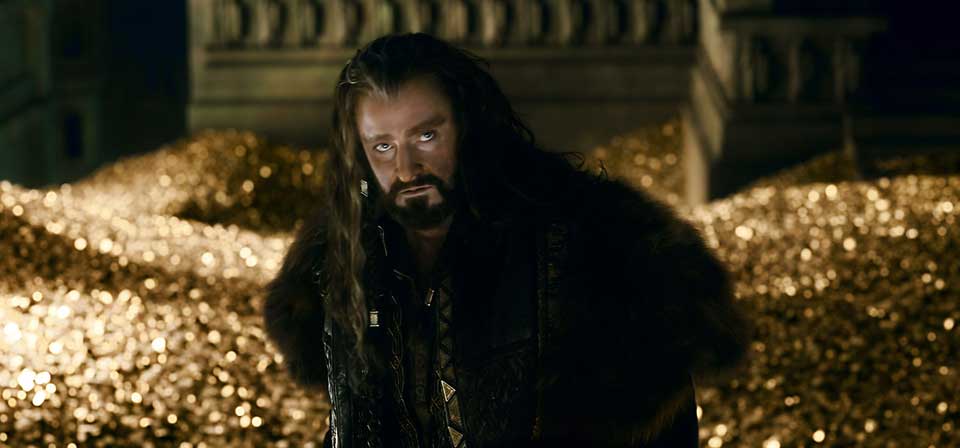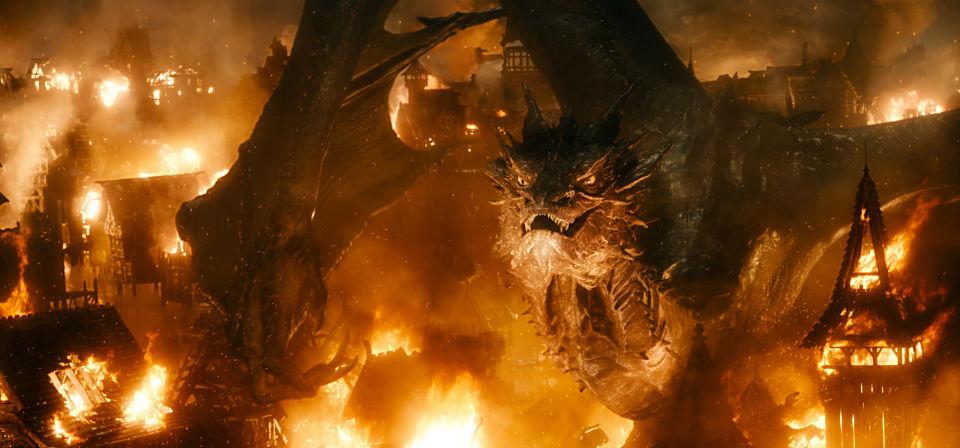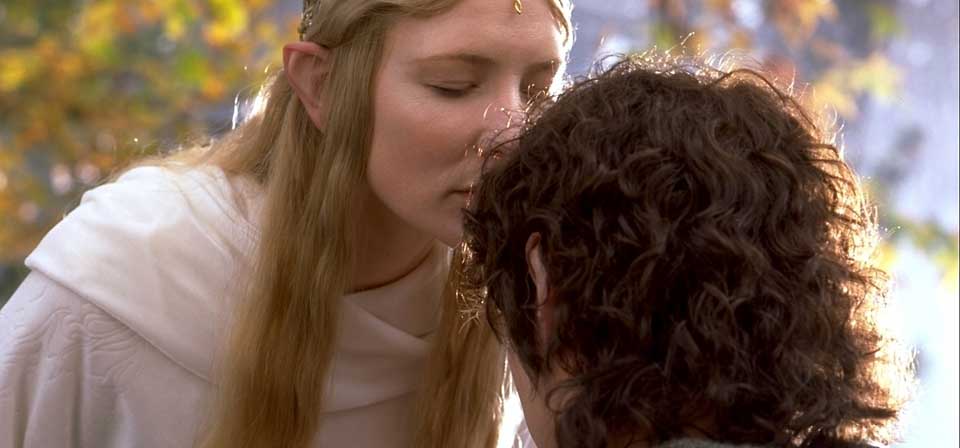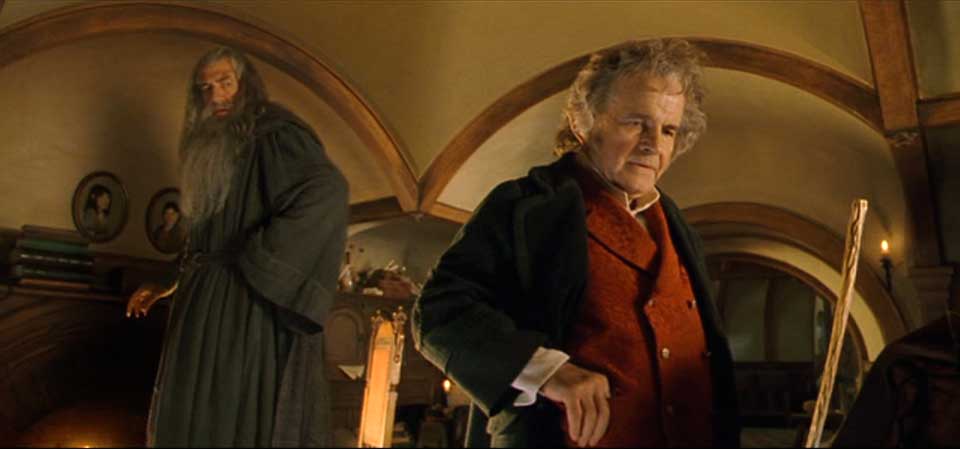Tags :: Peter Jackson's Middle Earth

How The Hobbit: The Battle of the Five Armies betrays Tolkien’s Catholic themes — and his religious fans
Changes like these are sadly typical of the Hobbit prequel trilogy, which is far cruder and less sensitive to the charm and beauty of its source material than the Lord of the Rings films were. As bad as Christopher Tolkien’s fears in 2012 about The Hobbit films might have been, the reality is worse.
![The Hobbit: The Battle of the Five Armies [video]](/uploads/articles/hobbit3_wVjz2vU.jpg)
The Hobbit: The Battle of the Five Armies [video]
“Will you follow me … one last time?” Well, if you promise it’s the last time.

The Hobbit: The Battle of the Five Armies (2014)
What I can say is that The Hobbit: The Battle of the Five Armies (a title strangely stuffed with too many the’s, at a time when movie titles often dispense with articles) includes — amid overinflated spectacle and cynical fan service — some of the best stuff of any of this prequel trilogy.
The Hobbit: The Desolation of Smaug (2013)
Now, two installments into the epically epic trilogification of Tolkien’s slender fairy tale for children, it seems Jackson and company have only one abiding goal: to keep one-upping themselves with ever more preposterous action sequences, nastier violence and more inappropriate humor.
The Hobbit: An Unexpected Journey [video]
The Hobbit: An Unexpected Journey in 60 seconds: my “Reel Faith” review.
The Hobbit: An Unexpected Journey (2012)
There is an early moment in The Hobbit: An Unexpected Journey that captures the evocative poetry of Tolkien’s songs — something that The Lord of the Rings films, for all their achievements, never did. By the time the credits roll, that moment feels like it belonged in a very different film.
Peter Jackson’s The Hobbit: The Trailer
I usually stay far away from trailers. I like to experience movies as cold as possible. But this is Peter Jackson’s The Hobbit, and my fine principles have failed me. The film itself is still a year off … and I can’t wait that long to satisfy my curiosity.
The Lord of the Rings: The Return of the King (2003)
It’s hard to overstate the soaring achievement of Peter Jackson and company in The Return of the King, the third and final chapter of their historic adaptation of The Lord of the Rings. To call it the grandest spectacle ever filmed is no exaggeration; it may also be the most satisfying third act of any film trilogy, completing what can now be regarded as possibly the best realized cinematic trilogy of all time.
The Achievement of Peter Jackson’s The Lord of the Rings
As Fritz Lang’s Metropolis was the first great science fiction film and Ford’s Stagecoach was perhaps the first great Western, The Lord of the Rings is the first great cinematic achievement of its kind - a genre that might be described as epic Western mythopoeia, but is often popularly (if imprecisely) called "fantasy" or "swords and sorcery."
The Lord of the Rings: Filmmakers Contemplate Journey, Significance of Books and Films
“I think that Tolkien says that some generations will be challenged,” said
The Lord of the Rings: The Two Towers (2002)
From the very first sequence of Peter Jackson’s The Two Towers — a bravura opening that stunningly recalls and continues a central sequence from The Fellowship of the Ring — we feel that we’re in good hands. It’s a promise the subsequent three hours deliver on imperfectly.

Faith and fantasy: Tolkien the Catholic, The Lord of the Rings, and Peter Jackson’s film trilogy
J. R. R. Tolkien once described his epic masterpiece The Lord of the Rings as "a fundamentally religious and Catholic work." Yet nowhere in its pages is there any mention of religion, let alone of the Catholic Church, Christ, or even God. Tolkien’s hobbits have no religious practices or cult; of prayer, sacrifice, or corporate worship there is no sign.
Peter Jackson’s The Lord of the Rings Film Trilogy: Will it be True to Tolkien?
Yet neither Baum nor even Mitchell ever quite generated the level of intensely passionate fan devotion inspired by J. R. R. Tolkien’s epic masterpiece The Lord of the Rings. This is a fact not lost on New Zealand director Peter Jackson, whose ambitious, unprecedented back-to-back three-film adaptation of The Lord of the Rings launches this December with The Fellowship of the Ring.

The Lord of the Rings: The Fellowship of the Ring (2001)
There can be no more fitting tribute to Peter Jackson’s The Fellowship of the Ring than to apply to it the words with which C. S. Lewis acclaimed the original book when Tolkien first wrote it: “Here are beauties that pierce like swords or burn like cold iron; here is a [film] that will break your heart.”
Recent
- Benoit Blanc goes to church: Mysteries and faith in Wake Up Dead Man
- Are there too many Jesus movies?
- Antidote to the digital revolution: Carlo Acutis: Roadmap to Reality
- “Not I, But God”: Interview with Carlo Acutis: Roadmap to Reality director Tim Moriarty
- Gunn’s Superman is silly and sincere, and that’s good. It could be smarter.
Home Video
Copyright © 2000– Steven D. Greydanus. All rights reserved.